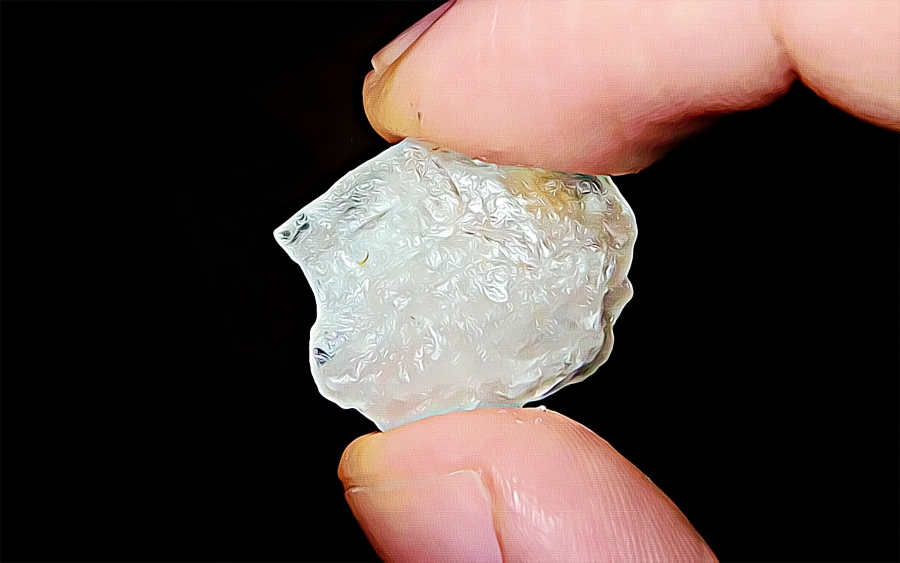Methamphetamine, known as “meth,” is a highly addictive stimulant drug. This crystalline powder, with its white, odorless, and bitter taste, can be consumed orally, injected, snorted, or smoked. Methamphetamine has a profound impact on dopamine levels, a neurotransmitter linked to pleasure and movement. By increasing dopamine, meth effects intensify the sensations of pleasure and physical activity.
When taken in large amounts, Methamphetamine can lead to a dangerous overdose, which may cause heart attack, stroke, and even death. However, Methamphetamine may exhibit immediate or short-term effects on people, including meth effects such as increased wakefulness, physical activity, and decreased appetite. As a result, the body may also develop cardiovascular problems.
Short-Term Effects
Meth effects can be observed even with small doses, leading to immediate or short-term consequences. These effects include increased wakefulness, heightened physical activity, and suppressed appetite. Consequently, individuals may experience cardiovascular complications as well.
1. Increased Heart Rate
Tachycardia, also known as increased heart rate, is the unusual rise in the heart rate caused by various factors. As a result, the heart will experience palpitations, causing it to enlarge and weaken. Continuous use can severely damage the heart.
2. Higher Blood Pressure
Methamphetamine increases blood pressure and can cause hypertension. It can cause damage to the arteries and other organs of the body, leading to stroke and heart attack. Therefore, reducing Methamphetamine use should help revert blood pressure to normal.
3. Decreased Appetite
Methamphetamine use decreases appetite and can lead to malnutrition and weight loss. It can also cause the body to be unable to absorb nutrients properly, leading to further health problems. It is essential to seek medical attention to help manage and treat any nutritional deficiencies.
4. Dilated Pupils
Methamphetamine use causes the pupils to dilate, leading to vision problems. It is essential to seek medical attention to ensure any vision problems are addressed. Additionally, avoiding further drug use can help reduce the severity of vision problems.
5. Heightened Alertness
Methamphetamine use can cause a person to be vigilant and attentive. Although it is beneficial in certain situations, it can also be dangerous if it leads to reckless behavior or if the user begins to experience paranoia or psychosis.
Long-Term Effects
Over time, regular use of methamphetamine can lead to addiction as users develop tolerance, requiring higher doses to experience the desired effect. This escalation in usage reflects the meth effects of increased tolerance, where larger quantities of the drug are needed to attain the same level of pleasure.
1. Addiction
Methamphetamine addiction results from tolerance and excessive drug use. For people who constantly use Methamphetamine for days, it might become challenging to withdraw from the drug, leading to withdrawal issues like anxiety, insomnia, and depression.
Methamphetamine addiction can have a significant impact on the user’s health. The drug can cause severe damage to the heart, liver, and kidneys, as well as the brain. Long-term use can also lead to malnutrition, tooth decay, and skin infections.
2. Neurotoxicity
Methamphetamine neurotoxicity is a condition caused by the long-term use of methamphetamine. It is characterized by persistent changes in the brain’s chemical structure, which can lead to cognitive deficits, learning disabilities, and psychiatric symptoms.
Methamphetamine neurotoxicity can cause changes in the way the brain processes information, as well as changes in behavior and mood. It can also lead to memory loss, decreased attention, and difficulty with problem-solving.
3. Mental Health Problems
Methamphetamine use is associated with various mental health problems, including depression, anxiety, paranoia, and psychosis. People who use methamphetamine may experience hallucinations, delusions, and mood swings. They may also be at an increased risk for suicide.
Individuals grappling with methamphetamine addiction should seek assistance from medical or mental health professionals. Specialized addiction treatment programs offer support in overcoming meth effects, and fostering healthier coping strategies for managing stress and other life challenges.
4. Organ Damage
Methamphetamine is a powerful stimulant drug that has become increasingly popular recently. Long-term methamphetamine use has been linked to various adverse physical and psychological effects, including damage to the brain.
Methamphetamine can cause damage to the brain, leading to memory loss, difficulty concentrating, and other cognitive issues. People who use methamphetamine are also at an increased risk of developing Parkinson’s disease.
5. Social Problems
Methamphetamine can cause people to become socially isolated, as well as to have difficulty maintaining relationships. It can also lead to financial problems due to the costly nature of the drug. As a result, people who constantly use it may experience social issues.
Additionally, people who use methamphetamine may be more likely to engage in risky behaviors such as driving under the influence, theft, and drug dealing that can lead to legal problems. These activities can lead to criminal charges and jail time.

Why is Methamphetamine Addictive?
Methamphetamine is highly addictive because it causes a surge of dopamine, a neurotransmitter associated with pleasure and reward. The dopamine surge leads to euphoria and a sense of well-being that can be very enticing.
Additionally, methamphetamine can cause a person to become physically dependent on the drug, leading to cravings and withdrawal symptoms when the drug is not used. As a result, people can’t stop using the drug as long as they have it with them.
Other Signs of Methamphetamine Addiction
Aside from the immediate and long-term effects of Methamphetamine, the physical effects of Methamphetamine addiction can be very severe and long-lasting. Those who abuse this powerful stimulant can experience a range of physical symptoms, including:
1. Rotting Teeth
Methamphetamine use can cause a person’s teeth to decay and rot due to a lack of proper oral hygiene due to the drug’s acidic nature, which can cause the enamel on the teeth to erode and break down. As a result, the teeth will prematurely rot and cause irreparable oral damage.
2. Significant Weight Loss
Methamphetamine use can cause rapid and drastic weight loss due to the drug’s appetite-suppressing effects, significantly decreasing muscle mass and body fat, leading to a malnourished and unhealthy appearance.
3. Acne Breakouts
Methamphetamine use can also cause an increase in acne due to the drug’s effects on the body’s hormones and sebaceous glands, which can lead to acne breakouts on the face, neck, and back that are challenging to treat.
4. Intense Scratching
Methamphetamine use can also lead to intense scratching due to the drug’s effects on the body’s central nervous system. As the medication causes increased stimulation, the user may need to scratch or pick at their skin, leading to scabs and scarring.
5. Mood Swings
Methamphetamine use can cause sudden and extreme mood shifts, leading to depression, anxiety, and paranoia. These mood swings can be intense and unpredictable, resulting in erratic behavior and potentially violent outbursts.
Methamphetamine Addiction Treatment
Methamphetamine addiction is a severe problem that can have long-term effects on a person’s health and well-being. If you or someone you know is suffering from an addiction to methamphetamine, it is essential to seek professional help.
Treatment options may include counseling, therapy, medication-assisted, cognitive behavioral, and 12-step programs. Finding a program tailored to the individual’s needs is essential to ensure the best possible outcome.
Conclusion
Living with methamphetamine addiction can be a challenging and lonely experience. Meth effects can take over one’s life, leaving individuals feeling overwhelmed, helpless, and desperate for a way out. However, with the proper treatment and support, recovery is possible. Tailored addiction treatment programs can help individuals overcome their meth addiction and learn healthier coping mechanisms for managing stress and other life issues.
Methamphetamine addiction is a severe problem with long-term consequences. For those struggling with meth effects, seeking help from medical or mental health professionals is crucial. Addiction treatment programs offer a path to recovery, providing individuals with the necessary tools and support to break free from methamphetamine addiction. Through personalized treatment approaches, individuals can regain control of their lives and work towards a healthier, addiction-free future.

